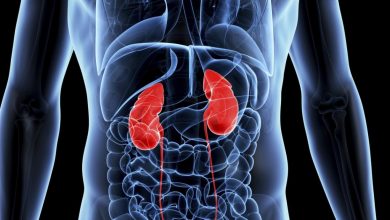Common Types of Body Aches: Understanding and Managing Everyday Discomfort

Body aches are a part of the human experience, often arising from various factors such as physical activity, lifestyle, and underlying health conditions. While most aches are temporary and benign, understanding their causes and learning how to manage them can greatly improve your quality of life. In this article, we will explore some of the most frequently encountered types of body aches and offer practical tips for their management.
Muscle Soreness: Post-Exercise Discomfort
- Muscle soreness, also known as delayed onset muscle soreness (DOMS), occurs after intense physical activity and is a sign of muscle repair and growth.
2. Headaches: Dealing with Cranial Discomfort
- Headaches can result from various triggers, including stress, dehydration, eyestrain, and tension.
3. Back Pain: Spinal Struggles
- Back pain is often attributed to poor posture, lifting heavy objects, and muscle strain.
4. Joint Pain: Mobility Challenges
- Joint pain may arise from arthritis, overuse, injuries, or inflammation.
5. Neck Pain: Tackling Tension
- Neck pain is commonly caused by poor posture, prolonged computer use, and muscle tension.
6. Foot Pain: Taking Steps to Alleviate Discomfort
- Foot pain can be a result of ill-fitting shoes, plantar fasciitis, or standing for extended periods.
7. Dental Pain: Oral Unrest
- Dental pain can stem from tooth decay, cavities, gum disease, or dental procedures.
8. Menstrual Cramps: Monthly Challenges
- Menstrual cramps are a common discomfort during menstruation due to uterine contractions.
9. Digestive Discomfort: Tummy Troubles
- Indigestion, bloating, and gas can lead to abdominal discomfort.
10. Sinus Pain: Nasal Nuisance – Sinus pain can result from allergies, infections, or sinus congestion.
11. Chest Pain: Heart and Beyond – Chest pain may be related to heartburn, muscle strain, or more serious cardiac issues.
12. Sciatic Pain: Nerve Compression – Sciatic pain occurs when the sciatic nerve is compressed or irritated, leading to lower back and leg discomfort.
13. Eye Strain: Visual Fatigue – Eye strain can be caused by prolonged screen time, poor lighting, or uncorrected vision.
14. Cramps: Sudden Muscle Contractions – Cramps can occur in various muscles due to dehydration, electrolyte imbalances, or muscle fatigue.
15. Arthritis Pain: Joint Inflammation – Arthritis pain is characterized by joint inflammation and can vary in severity.
Body aches are a common occurrence, but they don’t have to disrupt your daily life. By understanding the causes of different types of body aches and implementing preventive measures and management strategies, you can alleviate discomfort and improve your overall well-being. If persistent or severe pain is experienced, seeking medical advice is essential. Remember, staying hydrated, maintaining proper posture, engaging in regular exercise, and practicing stress management can contribute to reducing the frequency and intensity of common body aches.
Understanding the Causes of Body Aches: Exploring the Factors Behind Discomfort
Body aches are a common complaint that can range from mild discomfort to more intense pain. These aches can be caused by a variety of factors, and understanding their underlying causes is essential for effective management and prevention. In this article, we will delve into some of the key reasons behind body aches and explore how they can impact our well-being.
Physical Activity and Overexertion: Muscle Soreness
- Engaging in strenuous physical activities or overexertion can lead to muscle soreness and discomfort.
2. Stress and Tension: Triggering Muscle Tightness
- Emotional stress and tension can cause muscles to become tight and result in discomfort.
3. Poor Posture: Strain on Muscles and Joints
- Maintaining poor posture, whether while sitting, standing, or sleeping, can strain muscles and joints.
4. Injuries and Trauma: Impact on Tissues
- Accidents, falls, and injuries can cause damage to muscles, bones, and connective tissues, resulting in pain.
5. Inflammation: Underlying Health Conditions
- Inflammatory conditions such as arthritis and autoimmune disorders can lead to chronic pain and discomfort.
6. Dehydration: Impact on Muscle Function
- Dehydration can cause muscle cramps and contribute to overall bodily discomfort.
7. Illness and Infections: Body’s Response
- Viral or bacterial infections can lead to body aches as the immune system responds to the invading pathogens.
8. Medical Conditions: Underlying Health Issues
- Conditions like fibromyalgia, chronic fatigue syndrome, and certain neurological disorders can cause widespread body aches.
9. Aging: Natural Degeneration
- As we age, wear and tear on joints and muscles can result in increased instances of body aches.
10. Medications: Side Effects – Some medications may have body aches as a side effect, especially if they affect muscles or nerves.
11. Lack of Physical Activity: Muscular Stiffness – A sedentary lifestyle can lead to muscular stiffness and discomfort.
12. Nutritional Imbalances: Impact on Muscle Health – Nutritional deficiencies, especially of essential vitamins and minerals, can contribute to body aches.
13. Sleep Disturbances: Impact on Recovery – Poor sleep quality can hinder the body’s ability to recover from daily stressors, leading to aches.
14. Allergies: Immune Response – Allergic reactions can trigger inflammation and contribute to body aches.
15. Hormonal Changes: Menstrual and Menopausal Aches – Hormonal changes during menstruation and menopause can lead to body aches in some individuals.
Body aches can stem from a wide range of factors, both internal and external. Identifying the root cause of your discomfort is crucial for developing an effective management strategy. By maintaining a healthy lifestyle, addressing underlying health conditions, practicing stress management, staying hydrated, and seeking medical attention when necessary, you can reduce the frequency and intensity of body aches. Remember that every individual’s experience is unique, so tailoring your approach to your specific situation is essential for finding relief and enhancing your overall well-being.
















